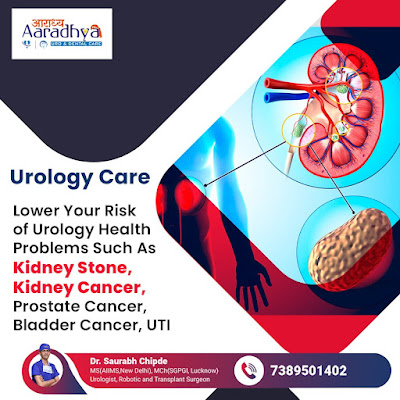Benefits of Laser Kidney Stone surgery
Laser kidney stone surgery is also known as laser lithotripsy, laser lithotripsy is a medical procedure which is generally used to break down stones present in the kidney and the urinary tract using shock and laser beams, these laser beam breakdowns the stones that are being developed in the gallbladder urethra and the kidneys. The remaining part of the breakdown of the stones is automatically filtered by the body when the person urinates.
What is Laser kidney stone surgery:-
It is most commonly used to rupture the stones present in urinary tract, gallbladder and kidneys. Sometimes this stone present in the kidneys are very much small enough that it automatically filters out through the body by urination but in cases when the size of stone is enhanced or its big it can lead to blockage of urinary track which blocks the urine flow and cause excessive pain.
If the stones does not pass properly it can also damage the kidneys and the whole urinary tract when medication does not help the patient to recover from kidney stones this is the procedure which is done to prevent kidney stones and its outburst. This procedure generally involves a flexible laser fiber which is inserted through a scope (camera) placed in the urinary tract via the urethra which helps to break up the stones present in the track or the Kidneys. The stone fragments are then removed with a small basket or other instruments. This procedure does not involve any incisions or cuts. Laser kidney stone surgery involves the administration of a series of shock waves to the targeted stone or the site of stone.lithotripter is the machine that is used to generate the shock waves, are focused by x-ray onto the kidney stone. The shock aur the radiation waves travel into the body through the skin and the tissues and then reaches the stone where it breakdown into small fragments. For several weeks following treatment, those small fragments are passed out of the body in the urine.
- This surgery does not require any incision or cuts on the body hence its a non invasive procedure.
- No blood loss while performing the surgery.
- No prolonged hospital stays and over medications
- Is easily assistive for doctors and surgeon.
- Very cost effective.
- Along with the time there are very less chances of failure or any other complications while performing the surgery.
- Along with the benefits of the surgery there are some of the risk factors that can be considered with or after the surgery.
- Little bit of bleeding during the surgery.
- Risk of infection
- There might be Obstruction of the urinary tract due to the broken stone fragments
- Stone fragments left inside the tract or the body may need more surgical procedures
- Shall be avoided by Pregnant patients
- Patients on "blood thinners" or patients with bleeding disorders.
- Aspirin or other blood thinners must be discontinued for at least 1 week prior to surgery as this include exposure of the radiations.
- Patients with chronic kidney infection, as it might be a risk because some fragments may not pass, so the bacteria will not be completely eliminated from the kidney and can cause further damage.
- Patients with obstruction or scar tissue in the ureter because of which stone fragments could not be easily passed.
- Patients who require immediate and/or complete clearance of stone material.




Comments
Post a Comment